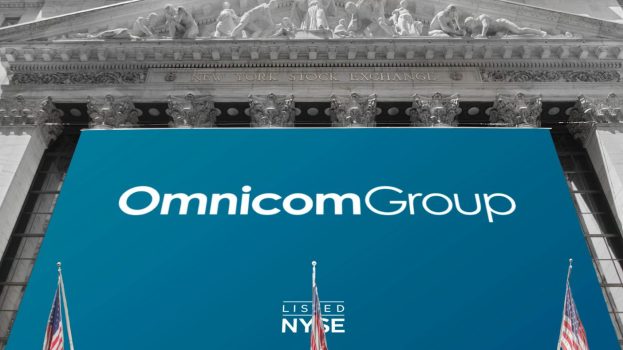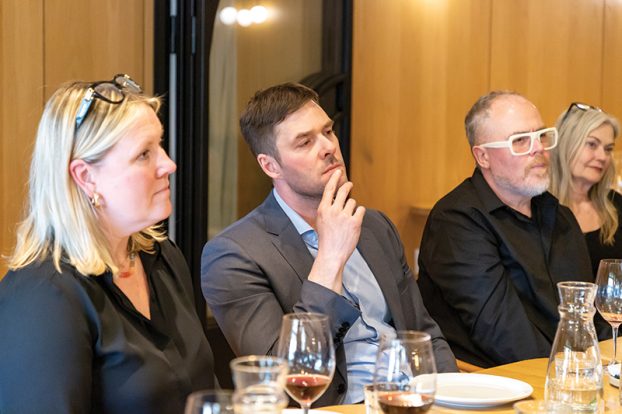Young & Rubicam is the latest in a series of international agency networks to bring its global media management brand into Canada, and it’s not expected to be the last.
The introduction of y&r’s The Media Edge earlier this month closely followed Omnicom’s unveiling of Canada’s largest media buying agency, Optimum Media Direction Canada, which is said to be responsible for more than $900 million in annual billings.
The Media Edge, first introduced in the u.s. last year, consolidates media planning and buying for y&r, its promotion division Firstcom Marketing and its direct response agency Wunderman Cato Johnson, although wcj will continue to do some of its own direct marketing buys.
Public relations firm Cohn & Wolfe is also part of y&r, but as it does not undertake huge amounts of media buying, it will probably be least affected by the deal.
Bruce Grondin, y&r’s senior vice-president, national media director and head of the new company, estimates annual billings for The Media Edge will range between $350 million and $400 million.
Grondin says that besides being able to develop its own roster of media-only clients, the benefit of a consolidated media operation lies in the pooling of funds to develop proprietary research and buy the expensive software and hardware that media planners and buyers need today.
‘I think that’s [the high cost] what’s going to cause further consolidation in the business.
‘Our research costs for bbm, pmb, Nielsen and others is astronomical. We have to have it, but we’re well into half a million dollars a year just for research.
‘That’s a real problem for full-service agencies that have anywhere from $20 to $50 million in billings.’
The high cost of research and the ‘media buying clout’ that comes with buying hundreds of millions of dollars of media a year are the key reasons behind the formation of these media management giants.
A few Canadian subsidiaries of international agency networks still handle media in-house.
Of those, J. Walter Thompson and Ogilvy & Mather have had the WPP Alliance for the past two years. This is not a merger but an alliance that combines the buying clout of the two agencies when negotiating with media suppliers although the actual planning and buying remains with each agency.
wpp did establish a separate media brand called MindShare in September 1997, but John Clinton, president and ceo of JWT Canada, says at the moment it’s operating only in Europe and Asia. Clinton says at this stage there’s no plan to bring MindShare to Canada or to formally merge the media responsibilities of the two agencies.
Leo Burnett, one of the largest international agency networks, is rumored to be looking at options, either through a merger or strategic alliance, for spinning off a global media buying brand.
While in many ways ‘bigger is better’ for media buying operations, a Toronto-based media consultant says a lot of clients still have to be sold on the concept.
Dick Berndt, president of Berndt Media, says clients need the advantages of consolidated buying units explained to them, particularly clients who might be concerned that larger accounts might get preference.
In the case of Optimum Media Direction which leaves planning as well as buying with the individual Omnicom agencies in cases of client conflict, Berndt says the clients left behind need to be assured they are getting the same media buying strength and advantages as the omd clients.
‘Someone has to explain to the advertiser the advantage of it in a way that doesn’t negate what was being done before. Are they going to say it was all screwed up for the past 10 years?
‘There is also the other issue of specials. If, for example, an agency makes a deal with cbc for the Olympic coverage, which car company gets to take advantage of it?’
Berndt adds, ‘I think independent media companies will be watching to see where they can move in on clients and ask how they can take care of them.’
The increased spending on research and the research tools that come with these consolidations are not only expected to benefit the media buying agencies and their clients but media sellers as well.
‘The fact that they are able to pool their resources, specifically in terms of gathering information will inevitably lead to better educated, well-informed planners and buyers, and that can only be positive for our industry,’ says Mark Spencer, group director of national advertising for The Toronto Star.
‘I think the newspaper industry would welcome and accept the trend to consolidate. I think it’s inevitable and probable that more groups will emerge,’ he says.
Spencer does caution that the claim by the consolidated media agencies that because they’re bigger, they also have more clout, doesn’t carry a lot of weight in the print business.
He says newspapers traditionally recognize individual advertisers, not agencies, when it comes to rewarding buying clout with volume rewards or added-value programs, and that isn’t likely to change.
Sidebar: A changing environment
Until the late 1980s, media buying in Canada was handled by full-service agencies and a handful of large media buying agencies such as Genesis Media, Media Buying Services (mbs), and Harrison Young Pesonen & Newell (hypn), that paved the way for smaller firms including David Cairns and Company, and Media Experts.
But the number of independents is dwindling.
Today hypn is owned by Omnicom and mbs has formed The Media Company with Grey Advertising’s media brand Mediacom.
Full-service agency spinoffs began with Initiative Media (MacLaren-McCann) and FCB Canada which first founded Optimedia (1989) but has consolidated buying under the TN Media banner after the Optimedia brand was repatriated by Publicis for its Canadian agencies at the beginning of this year.
Bensimon Byrne DMB&B introduced TeleVest this past April. Then last month came The Media Edge and Omnicom’s Optimum Media Direction. omd combines buying for BBDO Canada, Lanyon Phillips BBDO, GeneratorIdeaWorks, DDB Canada, Palmer Jarvis DDB, Anderson Advertising, Griffin Bacal Volny, TBWA Chiat/Day, and Rapp Collins Communicaide.
Even Cossette Communication-Marketing and Vickers & Benson – two of the last-remaining Canadian-owned agencies – got in on the act last year when they founded standalone media divisions Cossette Media and Maxxmedia. PS























